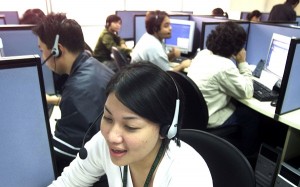One of the country’s leading Philippine offshore gaming operators, Oriental Game, is investing more than P8 billion to build two massive “Pogo hubs” in Cavite and Clark that will also serve as a one-stop shop for foreign workers to secure clearances from the government.
On the sidelines of the First Phil-Asian Gaming Expo last Friday, Oriental Game general manager Kevin Wong told reporters that the 20-hectare Pogo City in Cavite would have a capacity of 20,000 workers while the 10-hectare facility in Clark could accommodate 5,000 employees.
The Cavite facility will cost P8 billion, while the investment in Clark—already operational—was “a little smaller,” Wong said.
“With all the social tensions, we want to put everyone together in one place where we can just work. Basically, our core competency is to make money. But with all the people saying so and so about our [sector], we want to remove that and just focus on what we want to do, what our core competency is,” Wong explained.
Pogos that will operate in these hubs will be granted by regulator Philippine Amusement and Gaming Corp. (Pagcor) with five-year gaming licenses.
These hubs will also host offices for Pagcor, the Bureau of Immigration and the Bureau of Internal Revenue.
“So if you locate in a Pogo hub, no one would say ‘you’re illegal’ because all of [the government] agencies are already there,” Wong said.
An interagency joint memorandum circular issued last week mandated all incoming foreign workers to first secure visas, working permits and tax identification numbers to ensure they will pay the correct amount of personal income taxes.
At present, only Oriental Game is operating in Clark but even other competing Pogo firms can lease space for their operations there, Wong said.
“There’s been a lot of letters of intent” from other potential Pogo locators in the Clark hub, he said.
The Pogo hubs will also have residential and commercial buildings for the foreigners—mostly Chinese—who will work there, according to Wong.
At present, Wong said Oriental Game has 20,000 workers—of which 20 percent are Filipinos—serving not only China but also the wider Asian market as a whole.
Wong said they wanted the share of Filipino workers in Oriental Game to rise to 40 percent.


